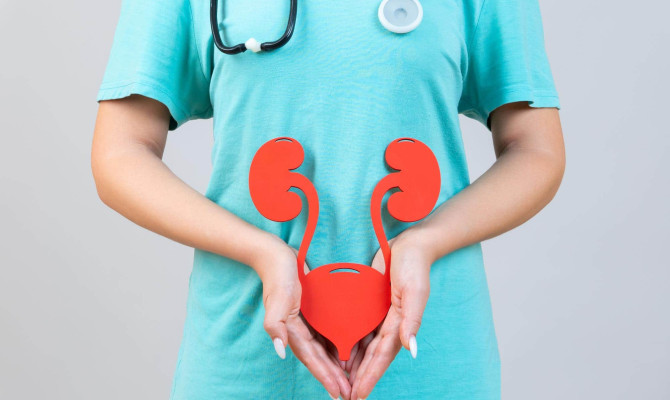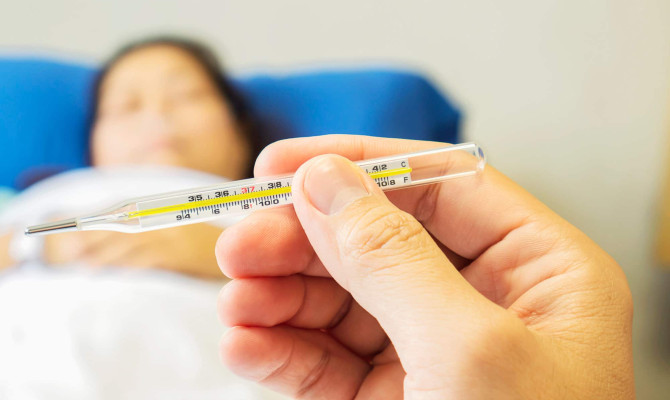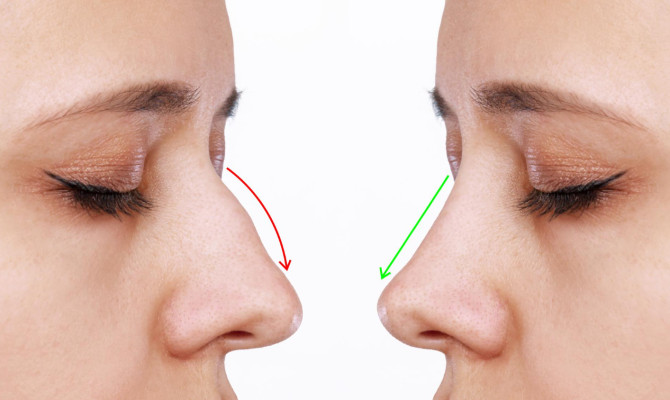Exocrine Pancreatic Insufficiency : Causes, Symptoms, and Treatment

- Exocrine pancreatic insufficiency
- 17 Aug 2023
Overview
About Exocrine Pancreatic Insufficiency
Exocrine Pancreatic Insufficiency (EPI) is a health illness characterized by absence of exocrine pancreatic enzymes that leads to impaired digestion of food.
When you experience gastrointestinal (GI) symptoms that cause discomfort along with hindered digestion, you can suspect EPI The body of individuals diagnosed with Exocrine Pancreatic Insufficiency does not have the ability to digest macronutrients such as fats, proteins, and carbohydrates from the ingested food.1Overview| Researched based study from Ohsu.edu
In this blog we will cover the whole picture that you must know about EPI (Exocrine Pancreatic Insufficiency).

What is EPI?
- The digestive system releases enzymes produced by the pancreas in a finely orchestrated manner to pump up the breakdown of meals. This facilitates the distribution of nutrients. The enzymes like lipases are known to break down fat, amylases are known to break down sugars and proteases break down the proteins.
- The role of these enzymes is to help in digestion, absorption and elimination of food. In the absence of these enzymes, the digested food would simply pile up and decay in the stomach.2Overview| Researched based study from Cdc.gov
- Thus, Exocrine Pancreatic Insufficiency (EPI) is when the pancreas cannot produce the enzymes which leads to improper digestion.
Causes
Exocrine pancreatic insufficiency causes
EPI is linked with certain medical conditions that have an impact on the pancreas. These medical conditions can either be congenital such as cystic fibrosis, or it can be acquired such as chronic pancreatitis.
Chronic pancreatitis
- Chronic pancreatitis is one of the leading causes of EPI in adults. It presents with inflammation, followed by irreversible damage to the pancreas.
Cystic fibrosis
- Cystic fibrosis is an inherited condition that mainly affects the lungs, digestive and reproductive system. The patient presents with thick, sticky mucus, seen in certain organs, most commonly in the lungs, digestive system, including the pancreas.
Thus, EPI might be associated with chronic pancreatitis and cystic fibrosis 3Causes| Researched based study from Nlm.nih.gov . It is advisable to consult a medical doctor if you have a medical condition and your body shows symptoms of exocrine pancreatic insufficiency.
Other causes of EPI include
- Diabetes.
- Cancer of the pancreas.
- Surgery done for weight loss.
- Cyst.
- Inflammatory Bowel disease.
- Zollinger-Ellison syndrome.
Collaborate with your healthcare provider to make sure of a correct diagnosis.
Symptoms
Exocrine pancreatic insufficiency symptoms
Symptoms of EPI can be from moderate to very severe. They are:
- Difficulty in passing the stool.
- Foul smelling stool that seems oily/greasy. It is usually known as “Fatty stools”
- Sudden weight loss.
- Pain in abdomen.
- Bloating and gas.
- Diarrhea.
- Stomach pain.
- Vitamin deficiencies that can be presented as fatigue, brittle nails, irritability, dry skin and difficulty concentrating.4Symptoms| Researched based study from Nlm.nih.gov
Talk to your healthcare expert if you experience any of the symptoms noted above. Always remember that an early diagnosis will decrease the risk of complications.
Diagnosis
Diagnosis of EPI
Many gastrointestinal problems can result in symptoms that resemble those of Exocrine Pancreatic Insufficiency (EPI). The chance of having exocrine pancreatic insufficiency (EPI) is considered by your healthcare provider.
To confirm the diagnosis of EPI, following tests must be undertaken.
Imaging tests
- Imaging tests such as CT scan or abdominal ultrasound may be conducted.
- They can detect pancreatic disorders that may result in EPI.
Stool tests
You will be given all details on how to collect stool samples for tests that might need the stool sample. You will probably be provided a device to gather the sample and a container to put it in. Make sure that the feces sample doesn’t include any toilet paper, toilet water, or pee.5Diagnosis| Researched based study from Nlm.nih.gov
Stool tests include following diagnosis:
Fecal elastase tests
- Elastase is an enzyme released during digestion from the pancreas. It is usually present in the stool. When this enzyme is absent, it can be a marker of EPI.
Fecal fat test
- The fecal fat test is used to quantify the quantity of undigested fat found in fecal matter. Increased fat content could indicate the presence of exocrine pancreatic insufficiency (EPI)5Diagnosis| Researched based study from Nlm.nih.gov
Secretin pancreatic function test
- Hormone that operates the release of digestive enzymes is the secretin. Secretin pancreatic function test is used to analyze the pancreatic response to secretion.
Complications
Complications of EPI
When there is impaired digestion of fats, proteins, and other carbohydrates, it leads to malabsorption.
If EPI is left and treated, then it can lead to:
- Hair loss.
- Facial swelling.
- Tiredness.
- Difficulty in concentrating.
- Memory loss.
- Feeling cold.
- Depression
- Dry skin.8Complications| Researched based study from Lluh.org
Treatment
Exocrine pancreatic insufficiency treatment
EPI is a threatening condition but it can be managed with timely intervention.
Pancreatic enzyme replacement therapy (PERT)
The first-rate option for the treatment of EPI is PERT. Although you cannot cure EPI, your symptoms can be managed by using Pancreatic enzyme replacement therapy. The digestive enzymes are replaced using this prescription medication as an alternative.
There are six PERT medications6Treatment| Researched based study from Pancreaticcancer.org.uk including:
- Creon, which became the first PERT medication to receive approval.
- Ultresa
- Viokace
- Nutrizym
- Zenpep
- Pancrex
- Pertzye
Follow a high calorie diet
- Sufficient amount of calories, along with fatty food (Fish, avocado, nuts) must meet the requirements of a balanced meal. Because it is this combination that promotes absorption of nutrients.
Include vegetables
- Individuals suffering from EPI must include green leafy vegetables, whole grains and proteins in their diet.
Integrate vitamins
- Vitamins like A, D,E and K are necessary for the apt working of the body. So, natural foods or vitamin supplements can be used.
In some cases, antacids are given to maintain enzyme supplementation. Analgesics are given for pain management.
Prevention
Prevention of EPI
Prevention strategies for EPI are as follow :
Avoid smoking and drinking alcohol
- You must refrain from smoking and restrict yourself from consumption of alcohol to maintain good liver health. It is because both of these habits will lead to pancreatitis. Pancreatitis is the leading cause of EPI.7Prevention| Researched based study from Pancreasfoundation.org
Know your symptoms
- Inherited disease like cystic fibrosis cannot be prevented, but you can decline the risk of acquiring EPI.
- By treating the basic cause of EPI one may live a longer, healthier life. Most patients with EPI will need PERT treatment permanently.
Risk
Risk of getting EPI
People are at risk of getting Exocrine pancreatic insufficiency if they are:
A patient having pancreatic surgery
- Exocrine pancreatic insufficiency is a potential risk for individuals who are undergoing pancreatic surgery. If you undergo any pancreatic surgery there is a significant chance for you to acquire Exocrine pancreatic insufficiency.
- The resection of tumor in case of pancreatitis can also lead to EPI as per the World Journal of Gastrointestinal Pathophysiology.9Risk| Researched based study from Nlm.nih.gov
On complete removal of pancreas
- In case of total pancreatectomy ie. Complete removal of pancreas, you will experience exocrine pancreatic insufficiency (EPI), a health illness characterized by the insufficient production of digestive enzymes needed for proper bodily function. A reduced pancreatic volume is directly proportional to a decreased capacity to synthesize digestive enzymes.
After Whipple procedure
- Pancreaticoduodenectomy also known as the Whipple procedure is one of the most commonly done surgical techniques for Cancer of pancreas. The incidence of exocrine pancreatic insufficiency (EPI) is considerably high after Whipple’s procedure, and it can markedly affect various factors such as longevity of life, health, and survival rates.
Prevalence
Prevalence of EPI
The exact incidence of Exocrine Pancreatic Insufficiency (EPI) in the general populace remains uncertain. EPI is known to be linked to conditions affecting the exocrine pancreas. It is often seen as an advanced symptom of chronic pancreatitis.
Prevalence of EPI in different health conditions:
- Chronic pancreatitis has 30-90% prevalence of EPI.
- There are some selected tumors which cannot be removed. Such unresectable tumors have 20-60% of EPI prevalence.
- Pancreatic tumor (prior to surgery) has 30-60% of EPI prevalence.
- An inherited condition, cystic fibrosis has 80-90% of EPI prevalence.
- Extensive pancreatic necrosis, Alcoholic history is also associated with prevalence of EPI.10Prevalence| Researched based study from Nlm.nih.gov
Outlook
The Outlook
EPI is the failure of pancreas. It demands to be treated with diet modifications, vitamin supplements and Pancreatic enzyme replacement therapy. Thus, the only goal of EPI treatment is to restore the function of the pancreas.
Any feedback on this article?
 This Articles content was accurate
This Articles content was accurate Very Informative Article
Very Informative Article I have a question or a comment
I have a question or a comment
 This article contains inaccurate content
This article contains inaccurate content This article was not helpful
This article was not helpful I have a question or a comment
I have a question or a comment
We appreciate your helpful feedback!
Checkout our social pages
References
-
Oregon health and science university
Understanding Exocrine Pancreatic Insufficiency (EPI) | Overview
-
Centers for Disease Control and Prevention
Organisation of the human pancreas in health and in diabetes | Overview
-
National Library of Medicine
Causes of Exocrine Pancreatic Insufficiency Other Than Chronic Pancreatitis | Causes
-
National Library of Medicine
Pancreatic Insufficiency | Symptoms
-
National Library of Medicine
Fecal elastase test: evaluation of a new noninvasive pancreatic function test | Diagnosis
-
Pancreatic Cancer U.K
Pancreatic enzyme replacement therapy (PERT) | Treatment
-
The National Pancreas Foundation
Exocrine Pancreatic Insufficiency (EPI) | Prevention
-
Loma Linda University for Health
EXOCRINE PANCREATIC INSUFFICIENCY (EPI) | Complications
-
National Library of Medicine
Pancreatic exocrine insufficiency after pancreaticoduodenectomy: Current evidence and management | Risk
-
National Library of Medicine
Exocrine pancreatic insufficiency: prevalence, diagnosis, and management | Prevalence




































